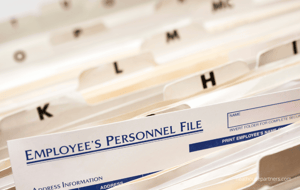The Importance of Paying The National Minimum Wage
If your business doesn't pay National Minimum Wage, you can face financial penalties.
James Rowland
Commercial Director James leads Account Management, Sales and Marketing at Neathouse Partners.Date
16 October 2019Updated
01 October 2024Table of contents
Related articles
Tags
The National Minimum Wage sets out the lowest hourly rate that you are allowed to pay your workers.
The exact amount varies by both the age and status of the worker and is designed to ensure workers are paid a reasonable amount for their work.
It has been the law that employers must pay a minimum wage since 1999, when it was set at £3.60 for adults.
Following the law and ensuring you pay the minimum wage is vital if you don't want to face large financial penalties.
As well as giving notice of arrears and issuing penalties, HMRC can also take employers to the civil court for not paying the National Minimum Wage.
About The National Minimum Wage
The National Minimum Wage is set each year in the Government's budget. There are different rates for workers under the age of 18, aged 18-20, 21-24 and 25 and over.
There is also a separate minimum wage for apprentices if they are either aged under 19 or are 19 or over and in the first year of their apprenticeship.
The minimum wage for those aged 25 and over is referred to as the National Living Wage.
Workers do not need to be permanently employed to receive the NMW. It applies to casual workers, agency workers, trainers, and more.
However, it doesn't apply to self-employed people, volunteers, and a number of other types of worker.
Paying National Minimum Wage Is the Law
Any business owner that wants to be law-abiding needs to pay the National Minimum Wage.
It has been the law for 20 years, and has risen over the years to keep up with the rate of inflation.
It is one of the number of duties that an employer has, along with paying employer's National Insurance, among other things.
Related blog posts

The Ultimate Guide to Staff Handbooks in the UK

Preventing Sexual Harassment In The Workplace

Menopause - Support In The Workplace

Employer responsibilities under UK-GDPR data protection law

Discipline Within The Workplace
Have questions?
Get in touch today
Contact us, and our team will get back to you within 24 hours. We value your questions and are committed to getting them answered quickly.


Hello! I am Nicky
Just fill in the form below with your details, and I will arrange for a member of our team to give you a call.
By clicking, you agree to our Privacy Policy



